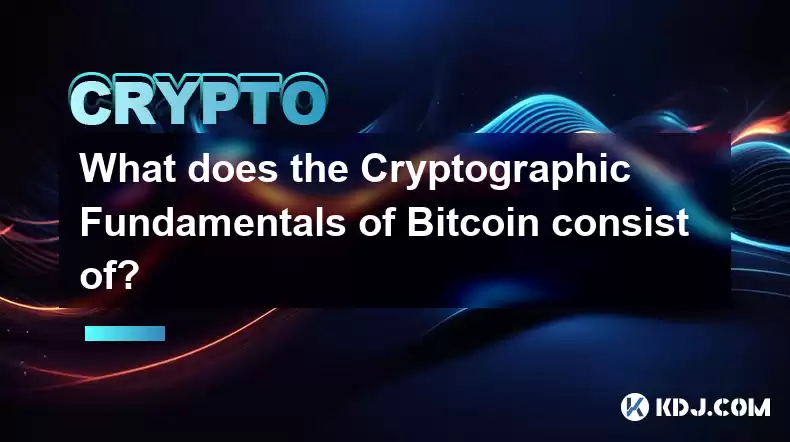-
 Bitcoin
Bitcoin $118000
-1.29% -
 Ethereum
Ethereum $3758
-3.52% -
 XRP
XRP $3.113
-5.04% -
 Tether USDt
Tether USDt $0.9998
-0.05% -
 BNB
BNB $818.5
-3.23% -
 Solana
Solana $181.9
-5.10% -
 USDC
USDC $0.9997
-0.04% -
 Dogecoin
Dogecoin $0.2239
-8.33% -
 TRON
TRON $0.3233
0.95% -
 Cardano
Cardano $0.7842
-6.81% -
 Hyperliquid
Hyperliquid $43.35
-2.12% -
 Sui
Sui $3.894
-9.97% -
 Stellar
Stellar $0.4176
-6.99% -
 Chainlink
Chainlink $17.97
-6.68% -
 Bitcoin Cash
Bitcoin Cash $576.7
-2.30% -
 Hedera
Hedera $0.2671
-7.23% -
 Avalanche
Avalanche $24.64
-6.12% -
 UNUS SED LEO
UNUS SED LEO $8.972
0.08% -
 Litecoin
Litecoin $108.1
-6.55% -
 Toncoin
Toncoin $3.198
-5.94% -
 Shiba Inu
Shiba Inu $0.00001325
-6.80% -
 Ethena USDe
Ethena USDe $1.001
-0.04% -
 Uniswap
Uniswap $10.27
-7.02% -
 Polkadot
Polkadot $3.935
-7.49% -
 Monero
Monero $317.7
-2.24% -
 Dai
Dai $0.9999
0.00% -
 Bitget Token
Bitget Token $4.550
-3.85% -
 Pepe
Pepe $0.00001179
-8.68% -
 Cronos
Cronos $0.1418
-2.34% -
 Aave
Aave $286.2
-6.49%
What does the Cryptographic Fundamentals of Bitcoin consist of?
Understanding Bitcoin's cryptographic underpinnings, including hash functions, public-key cryptography, and the proof-of-work algorithm, is crucial for comprehending its decentralized infrastructure and security mechanisms.
Feb 21, 2025 at 12:06 pm

Key Points
- Understanding the cryptographic algorithms used in Bitcoin
- Familiarization with the Bitcoin blockchain and its underlying mechanics
- Examination of the security measures that protect Bitcoin from attack
- Analysis of the decentralized nature of Bitcoin and its implications
- Discussion of the scalability and transaction fee issues associated with Bitcoin
The Cryptographic Fundamentals of Bitcoin
Bitcoin operates on a secure foundation of cryptographic algorithms and protocols that provide the backbone for its decentralized infrastructure. Understanding these cryptographic fundamentals is essential for anyone seeking a comprehensive grasp of Bitcoin's technological underpinnings.
1. Understanding Hash Functions
Hash functions, such as SHA-256, are cryptographic building blocks used in Bitcoin to create a unique identifier for each transaction and block in the blockchain. These functions take an input of variable length and produce a fixed-length output, known as a hash. Hashing is a one-way process, making it computationally infeasible to reverse-engineer the input from the hash.
2. Public-Key Cryptography
Bitcoin leverages public-key cryptography to establish secure communication channels between nodes within the network. As part of the process, each Bitcoin user generates a pair of keys, a public key and a private key. The public key is shared with other network participants and used for encrypting messages, while the private key remains secret and is used for decrypting incoming messages.
3. Digital Signatures
Digital signatures are another key cryptographic element used in Bitcoin to ensure the integrity and authenticity of transactions. When a Bitcoin user initiates a transaction, they sign it with their private key. This digital signature verifies the user's identity and prevents unauthorized alterations of the transaction data.
4. Merkle Trees
Merkle trees, also known as hash trees, are data structures utilized in Bitcoin to compress large amounts of transaction data into a single, verifiable root hash. Each transaction is assigned a hash, and these hashes are organized into a hierarchical structure, with the root hash representing the entire blockchain. This enables efficient verification of transaction inclusion without the need to download and process the entire blockchain.
5. Proof-of-Work Algorithm
The Bitcoin network employs a proof-of-work algorithm, specifically SHA-256, to validate new blocks to be added to the blockchain. Miners use specialized hardware to solve complex mathematical puzzles, and the first miner to find a solution earns the right to add the next block to the chain. This process ensures the security and immutability of the blockchain by making it computationally expensive to tamper with or reverse transactions.
6. Decentralization and Network Security
Decentralization is a fundamental aspect of Bitcoin, as it does not rely on any central authority for operation or governance. Instead, participants known as nodes collectively maintain the Bitcoin network, validating and relaying transactions. The decentralized nature of Bitcoin enhances its security and resilience by eliminating single points of failure.
7. Scalability and Transaction Fees
Bitcoin's transaction throughput and transaction fees have been an ongoing subject of debate and development. As the network has grown in popularity, the number of transactions has increased, leading to longer confirmation times and higher transaction fees during periods of high demand. Ongoing efforts are underway to address these scalability challenges, including the implementation of second-layer solutions, such as the Lightning Network.
FAQs
- What is the most important cryptographic algorithm used in Bitcoin?
SHA-256 is the primary cryptographic algorithm used in Bitcoin, serving as the basis for hashing functions, digital signatures, and the proof-of-work algorithm. - How does public-key cryptography ensure secure communication in Bitcoin?
Public-key cryptography allows network participants to exchange encrypted messages. Each user holds a pair of keys, a public key for encryption and a private key for decryption, ensuring secure transmission of sensitive information. - What is the purpose of the proof-of-work algorithm in Bitcoin?
The proof-of-work algorithm, using SHA-256, serves as a gatekeeper for adding new blocks to the blockchain. Miners compete to solve complex mathematical puzzles, and successful solution finders earn the right to append the next block, securing the network and preventing malicious actors from manipulating the blockchain. - How does decentralization enhance the security of Bitcoin?
Decentralization distributes the Bitcoin network's maintenance and oversight among all participating nodes. This eliminates central points of failure, making it more resistant to censorship, hacking, and other malicious activities. - What challenges does Bitcoin face in terms of scalability?
Bitcoin's transaction throughput and transaction fees have been subject to scrutiny as the network's usage has grown. High demand periods can lead to longer confirmation times and increased fees. Developers are exploring various methods, such as the Lightning Network, to improve scalability without compromising security.
Disclaimer:info@kdj.com
The information provided is not trading advice. kdj.com does not assume any responsibility for any investments made based on the information provided in this article. Cryptocurrencies are highly volatile and it is highly recommended that you invest with caution after thorough research!
If you believe that the content used on this website infringes your copyright, please contact us immediately (info@kdj.com) and we will delete it promptly.
- XRP Price Prediction: July 29th - Will XRP Break Free?
- 2025-07-29 15:30:12
- SEC, Truth Social, and Bitcoin ETFs: A New York Minute on Crypto Regulation
- 2025-07-29 15:10:12
- Bitcoin Treasury Titans: Decoding Strategy, BTC Purchases, and the MSTR Gamble
- 2025-07-29 15:10:12
- Ethereum, Dogecoin, and Little Pepe: A Crypto Trifecta for 2025?
- 2025-07-29 15:35:12
- LILPEPE vs DOGE: The Meme Coin Landscape in 2025
- 2025-07-29 15:40:13
- Dogecoin vs. Little Pepe: The Meme Coin Throne in 2025
- 2025-07-29 15:45:12
Related knowledge

What is Chainlink (LINK)?
Jul 22,2025 at 02:14am
Understanding Chainlink (LINK): The Decentralized Oracle NetworkChainlink is a decentralized oracle network designed to bridge the gap between blockch...

What is Avalanche (AVAX)?
Jul 22,2025 at 08:35am
What is Avalanche (AVAX)?Avalanche (AVAX) is a decentralized, open-source blockchain platform designed to support high-performance decentralized appli...

What is Polkadot (DOT)?
Jul 19,2025 at 06:35pm
Understanding the Basics of Polkadot (DOT)Polkadot (DOT) is a multi-chain network protocol designed to enable different blockchains to transfer messag...

What is Litecoin (LTC)?
Jul 23,2025 at 11:35am
Overview of Litecoin (LTC)Litecoin (LTC) is a peer-to-peer cryptocurrency that was created in 2011 by Charlie Lee, a former Google engineer. It is oft...

What is Monero (XMR)?
Jul 21,2025 at 10:07am
What is Monero (XMR)?Monero (XMR) is a decentralized cryptocurrency designed to provide enhanced privacy and anonymity for its users. Unlike Bitcoin a...

How to add indicators to Ethereum chart on TradingView?
Jul 19,2025 at 07:15am
What Is an Ethereum Chart on TradingView?The Ethereum chart on TradingView is a visual representation of the price movement of Ethereum (ETH) over a s...

What is Chainlink (LINK)?
Jul 22,2025 at 02:14am
Understanding Chainlink (LINK): The Decentralized Oracle NetworkChainlink is a decentralized oracle network designed to bridge the gap between blockch...

What is Avalanche (AVAX)?
Jul 22,2025 at 08:35am
What is Avalanche (AVAX)?Avalanche (AVAX) is a decentralized, open-source blockchain platform designed to support high-performance decentralized appli...

What is Polkadot (DOT)?
Jul 19,2025 at 06:35pm
Understanding the Basics of Polkadot (DOT)Polkadot (DOT) is a multi-chain network protocol designed to enable different blockchains to transfer messag...

What is Litecoin (LTC)?
Jul 23,2025 at 11:35am
Overview of Litecoin (LTC)Litecoin (LTC) is a peer-to-peer cryptocurrency that was created in 2011 by Charlie Lee, a former Google engineer. It is oft...

What is Monero (XMR)?
Jul 21,2025 at 10:07am
What is Monero (XMR)?Monero (XMR) is a decentralized cryptocurrency designed to provide enhanced privacy and anonymity for its users. Unlike Bitcoin a...

How to add indicators to Ethereum chart on TradingView?
Jul 19,2025 at 07:15am
What Is an Ethereum Chart on TradingView?The Ethereum chart on TradingView is a visual representation of the price movement of Ethereum (ETH) over a s...
See all articles

























































































